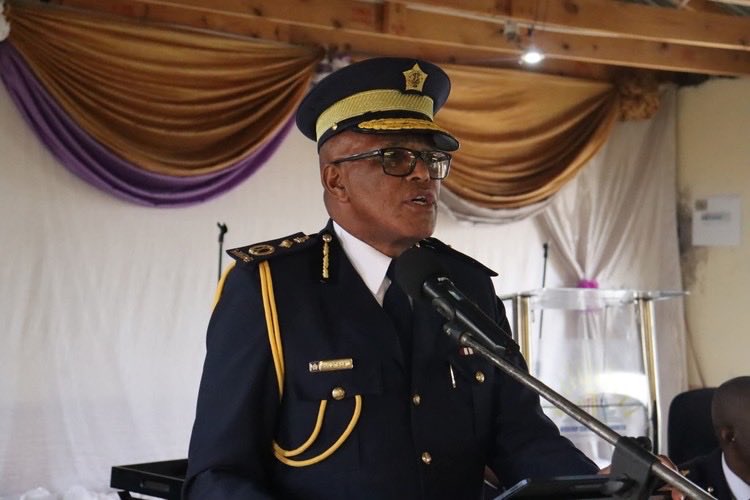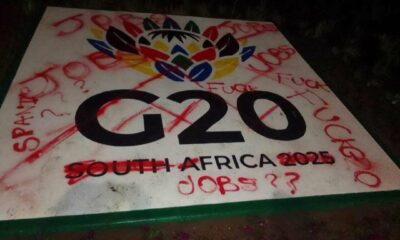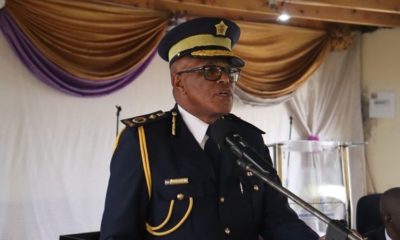News
Pockets of Concern: Inside SAPS’s Investigation into Basotho “Training Camps”

Is there more than meets the eye in allegations of cross-border paramilitary activity?
Over the past few weeks, whispers of secret Basotho gathering places on South African farms have sparked concern—but also confusion. Are these actual military-style camps, or just rumours amplified by politics? South Africa’s police are now delving deeper to find out.
From Maseru to Mpumalanga: How It All Started
The story began when Lesotho Mounted Police Commissioner Advocate Borotho Matsoso claimed that Basotho nationals were training in certain South African regions, specifically farms spread across the Free State, Eastern Cape, Mpumalanga, Northern Cape, and KwaZulu‑Natal, under a group called Malata Naha, or “land reclaimers”.
These assertions tie into political land claims led by Basotho Covenant Movement leader Dr Tshepo Lipholo, who has argued for reclaiming territories he says were wrongfully taken from Lesotho. Lipholo, now charged with sedition and incitement in Maseru, allegedly encouraged Basotho youth to prepare for armed action.
High-Level Response: SAPS Meets Lesotho Counterparts
In early August, General Fannie Masemola, South Africa’s National Police Commissioner, flew to Maseru for a top-level meeting with Lesotho’s police chief and intelligence officials. Accompanying her was Lieutenant General Tebello Mosikili, co-chair of South Africa’s NATJOINTS structure, as well as criminal intelligence and Home Affairs officials.
Their mission was twofold: share intelligence, and examine Lesotho’s claims. Initially, SAPS investigations in suspected provinces turned up nothing, no camps or drills were found in the mapped areas.
Pockets, Not Paramilitary Camps
Despite not finding organised camps, SAPS did report discovering “pockets of individuals” small groups that raised suspicion—living in border and inland zones. These groups may not resemble full-on military setups, but could still involve training disguised as something else. Mosikili warned it’s too soon to rule the scenario out entirely.
Social Media Sparks Debate
Local chatter has ranged from scepticism to sarcasm:
“People are claiming there’s a rebel army on farms. Sounds like plotlines from old apartheid-era scares.”
Meanwhile, official voices from Lesotho further cloud the picture, including denials that the Basotho Covenant Movement is behind any paramilitary activity on South African soil.
The Political Backdrop: Why Land Claims Matter
The heart of the matter is political. Lipholo and the BCM are pushing a nationalist agenda rooted in redrawing colonial borders, a position condemned by Lesotho’s government, which says he acted without its support. The dispute is part of a broader historical grievance by some in Lesotho, especially about loss of land to South Africa.
What’s Next in the Investigation
The two police agencies have agreed to review Lesotho’s intelligence within seven days, comparing notes and deciding whether further fieldwork is warranted IOL. Less than 100 individuals have been detained in South Africa on illegal-entry charges so far, none accused of paramilitary leadership or infrastructure.
Why It Matters to South Africans
At stake is more than cross-border intrigue: it’s regional stability, diplomatic trust, and South Africa’s ability to ensure its territory isn’t used for foreign agendas. The investigation also speaks to broader questions of immigration, security, and how history intersects with politics today.
There’s no smoking gun yet, but the groundwork is being laid. As SAPS and Lesotho’s law enforcement step up coordination, what emerges in the coming days could shift the narrative: from wild speculation to confirmed disruption or a case of political posturing amplified by old fears.
Until then, it remains pockets of concern, not clear military danger.
This probe blends security concerns with historical and political friction, urging readers to track how memory, borders, and modern law enforcement interact in our times.
{Source: IOL}
Follow Joburg ETC on Facebook, Twitter , TikTok and Instagram
For more News in Johannesburg, visit joburgetc.com



























